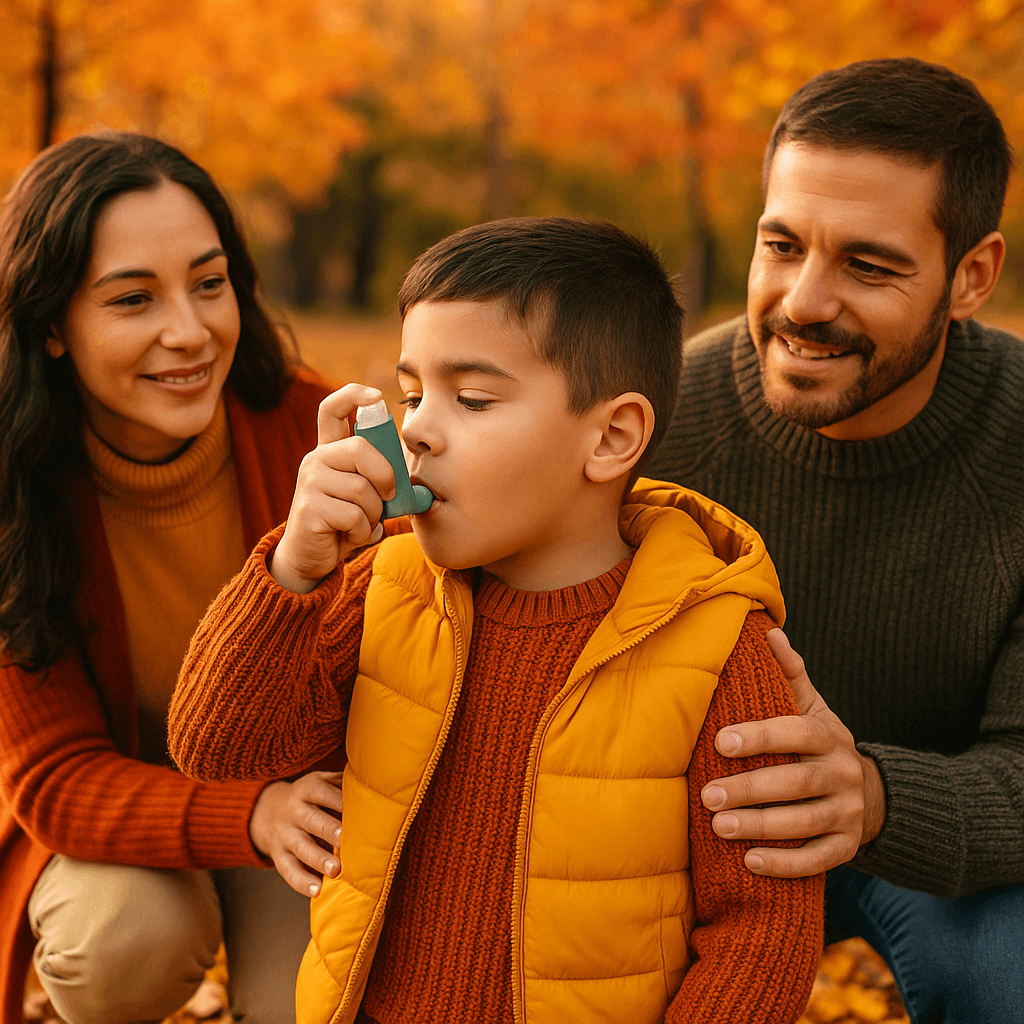Managing Asthma and Breathing Issues in Cooler Weather
September 17, 2025

As the crisp fall air sets in and temperatures continue to drop, many families look forward to cozy sweaters, hot drinks, and holiday traditions. But for children with asthma or other breathing conditions, cooler weather can also mean more flare-ups and discomfort. Cold, dry air is known to irritate the airways, and seasonal triggers like colds, flu, and indoor allergens can make things worse.
The good news is that with some preparation and awareness, parents can help their children breathe easier throughout the fall and winter months.
Why Cold Air Affects Breathing
When we breathe in cold air, it’s often drier than the warm air we’re used to in summer. For children with sensitive airways, this dry air can cause the muscles around the lungs to tighten, leading to wheezing, coughing, or shortness of breath. Add in exercise (like outdoor play or sports) or exposure to colds and flu, and asthma symptoms can appear more often.
Tips for Keeping Symptoms Under Control
1. Use Preventive Medication Consistently
If your child has prescribed daily asthma medication or an inhaler, cooler weather is not the time to skip doses. Make sure you follow your pediatrician’s or specialist’s treatment plan closely. Keep rescue inhalers on hand and ensure your child knows how and when to use them.
2. Bundle Up Before Going Outdoors
Wearing a scarf or a loose-fitting mask over the nose and mouth helps warm the air before it reaches the lungs. This simple step can make outdoor activities more comfortable for children with asthma.
3. Watch for Seasonal Triggers
Indoor heating systems can stir up dust and pet dander, while fireplaces and candles can add irritants to the air. Regular vacuuming, dusting, and using air purifiers can make a big difference. If your child has known allergies, be mindful of these triggers at home.
4. Encourage Indoor Warm-Ups
If your child plays sports or enjoys outdoor activities, have them warm up indoors first. Gradually easing into physical activity can reduce the likelihood of sudden asthma symptoms brought on by cold air.
5. Stay Ahead of Illnesses
Colds and the flu can make breathing issues much worse. Encourage frequent handwashing, good sleep, and seasonal vaccines to help reduce the risk of illness. At the first sign of a respiratory infection, check in with your pediatrician, especially if your child’s asthma symptoms are worsening.
When to Call Your Doctor
If you notice your child using their rescue inhaler more often, struggling to sleep due to coughing or wheezing, or showing signs of labored breathing, contact your pediatrician right away. Asthma symptoms can escalate quickly, and early intervention is always best.
Fall and winter should be seasons of joy, not stress over breathing difficulties. By staying proactive—using medication as prescribed, avoiding triggers, and preparing for colder air—you can help your child manage asthma and enjoy the months ahead more comfortably.
With the right steps, kids with asthma can thrive in every season.
At Holly Springs Pediatrics, we’re here to support your family’s health all year round. If you have any questions or concerns about your child’s skin, give us a call. We’re happy to help you find the best ways to keep your little one comfortable and healthy this season.
Holly Springs Pediatrics is committed to providing quality care to your kids at all times on a wide array of subjects. For more information or to get in contact with our office, call (919) 249-4700 to schedule an appointment.
